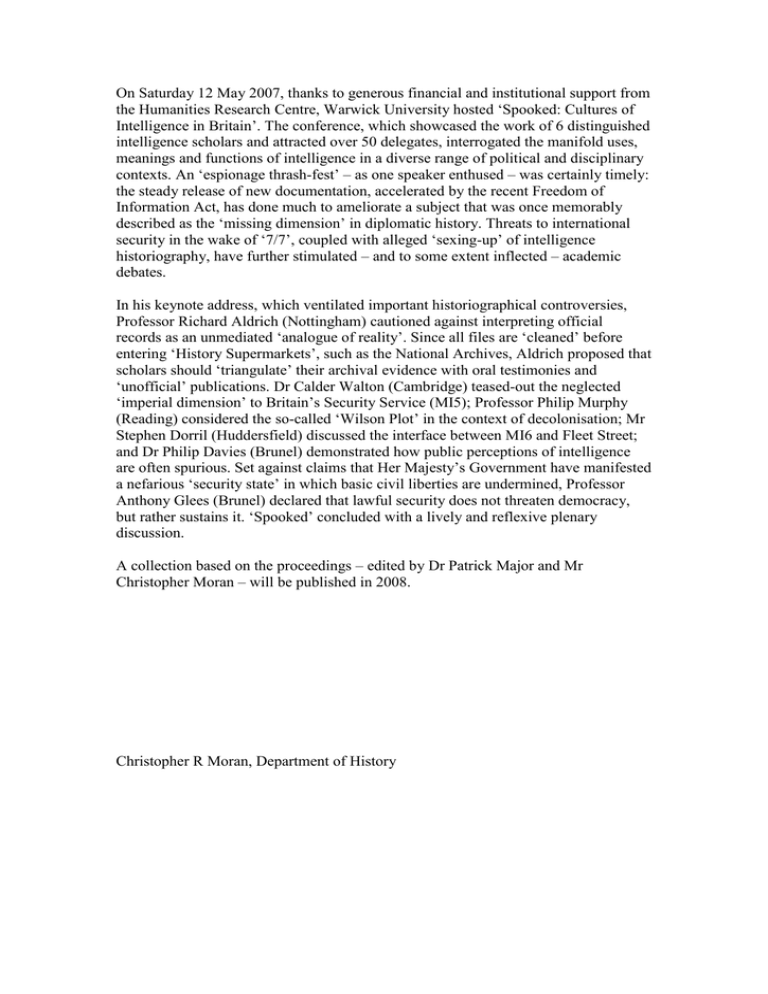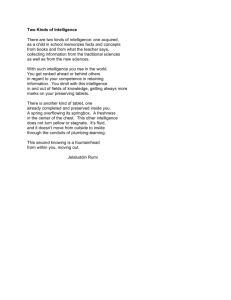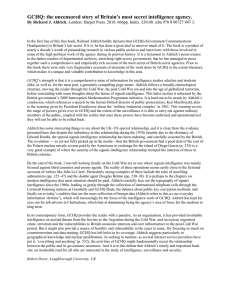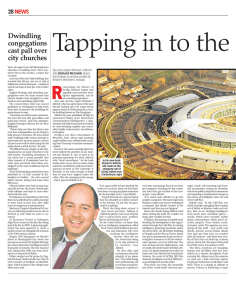On Saturday 12 May 2007, thanks to generous financial and... the Humanities Research Centre, Warwick University hosted ‘Spooked: Cultures of
advertisement

On Saturday 12 May 2007, thanks to generous financial and institutional support from the Humanities Research Centre, Warwick University hosted ‘Spooked: Cultures of Intelligence in Britain’. The conference, which showcased the work of 6 distinguished intelligence scholars and attracted over 50 delegates, interrogated the manifold uses, meanings and functions of intelligence in a diverse range of political and disciplinary contexts. An ‘espionage thrash-fest’ – as one speaker enthused – was certainly timely: the steady release of new documentation, accelerated by the recent Freedom of Information Act, has done much to ameliorate a subject that was once memorably described as the ‘missing dimension’ in diplomatic history. Threats to international security in the wake of ‘7/7’, coupled with alleged ‘sexing-up’ of intelligence historiography, have further stimulated – and to some extent inflected – academic debates. In his keynote address, which ventilated important historiographical controversies, Professor Richard Aldrich (Nottingham) cautioned against interpreting official records as an unmediated ‘analogue of reality’. Since all files are ‘cleaned’ before entering ‘History Supermarkets’, such as the National Archives, Aldrich proposed that scholars should ‘triangulate’ their archival evidence with oral testimonies and ‘unofficial’ publications. Dr Calder Walton (Cambridge) teased-out the neglected ‘imperial dimension’ to Britain’s Security Service (MI5); Professor Philip Murphy (Reading) considered the so-called ‘Wilson Plot’ in the context of decolonisation; Mr Stephen Dorril (Huddersfield) discussed the interface between MI6 and Fleet Street; and Dr Philip Davies (Brunel) demonstrated how public perceptions of intelligence are often spurious. Set against claims that Her Majesty’s Government have manifested a nefarious ‘security state’ in which basic civil liberties are undermined, Professor Anthony Glees (Brunel) declared that lawful security does not threaten democracy, but rather sustains it. ‘Spooked’ concluded with a lively and reflexive plenary discussion. A collection based on the proceedings – edited by Dr Patrick Major and Mr Christopher Moran – will be published in 2008. Christopher R Moran, Department of History




![This article was downloaded by:[Aldrich, Richard J.] On: 22 January 2008](http://s2.studylib.net/store/data/012423147_1-106899b8a5fec52faa5cf8b9794b0f6e-300x300.png)